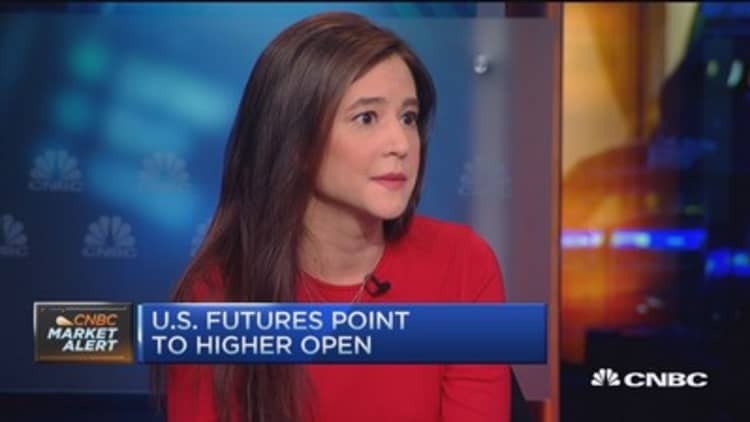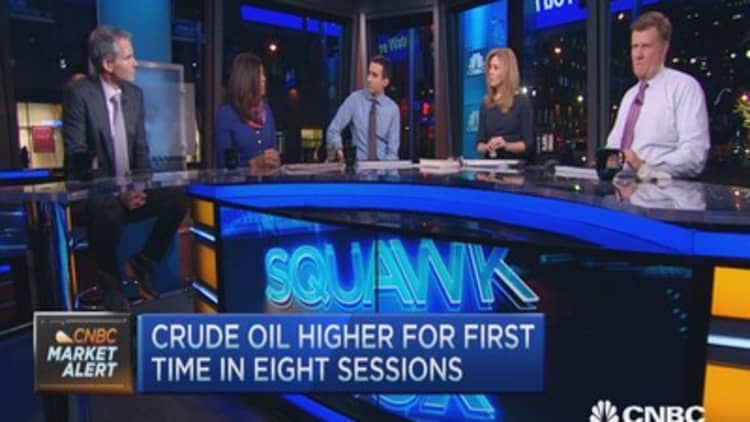
JPMorgan Funds expects earnings to improve this year, but global market strategist Gabriela Santos said Wednesday they won't rise as much as projections imply.
The S&P is mired in a three-quarter revenue recession, and earnings were negative for the third quarter and are expected to come in negative for last quarter. S&P Capital IQ sees earnings for the fourth quarter falling 5.7 percent from the year ago period.
Where U.S. stocks end 2016 will largely depend on whether or not earnings growth comes through, said Santos. The S&P broke a three-year winning streak in 2015, ending down 0.7 percent.
"Predictions right now we think are a bit lofty," she told CNBC's "Squawk Box," S&P projected earnings of $126 per share for 2016 imply earnings growth of 18 percent, according to Santos.
"We would say it's more reasonable to expect a growth of much closer to 10 percent," putting total S&P EPS at $120 per share would make more sense, she added.
At that point the S&P multiple can expand to about 17 times earnings, which Santos called, "really not a very lofty expansion."
While there is a lot of gloom surrounding the markets at present, Santos said JPMorgan would need to see the United States fall into recession before it turned negative on earnings or markets on the whole.
In the current environment, JPMorgan is sticking to the themes that bore fruit in 2015. Health care is not a one-time play but a long-term story, said Santos. She also likes consumer-linked stocks and certain areas of the financials sector, but cautioned investors need to be selective.
"We think there is scope for financials. A lot of volatility does help with some of that trading revenue, but besides that just thinking more broadly, the increase in rates does have an effect on financial margins, and that's an important thing to keep in mind," she said.

Joseph Zidle, portfolio strategist at Richard Bernstein Advisors, said he is not ready to count out U.S. stocks, despite warning signs in junk bond markets, where spreads relative to investment-grade debt have been widening.
"On the other side of the equation, does this feel like a recession coming to the United States? I would say no. We still have a pretty healthy yield curve. We have a consumer that's getting better," he told "Squawk Box" on Wednesday.
"So we look at this market and say odds are we're going to see a profits recovery here in the United States in the next quarter or two, and I think that leads to ... a much better environment for stocks in the U.S. in 2016."
After a string of disappointing earnings periods, comparisons will soon become easier, particularly for companies with overseas operations that were hurt by the strong dollar, Zidle said. The massive write-downs energy companies booked in previous quarters amid a commodity collapse will also have a lesser impact going forward, he added.
But easier comparisons do not necessarily mean 2016 will be a good year for U.S. stocks, according to Tina Byles Williams, founder of asset manager FIS Group.
"The bullish argument is a base effect argument, that relative to a bad year it won't be as bad," she told "Squawk Box" on Wednesday.
The potential for wage pressure to impact profits as the United States approaches full employment is currently underappreciated, and dollar strength looks set to continue, Williams said. For these reasons and others, the real opportunities and profit strength will continue to lie outside the country in Europe and Japan, she added.
Correction: This version clarifies that Santos said S&P 500 earnings growth would not be as high as projections imply.



